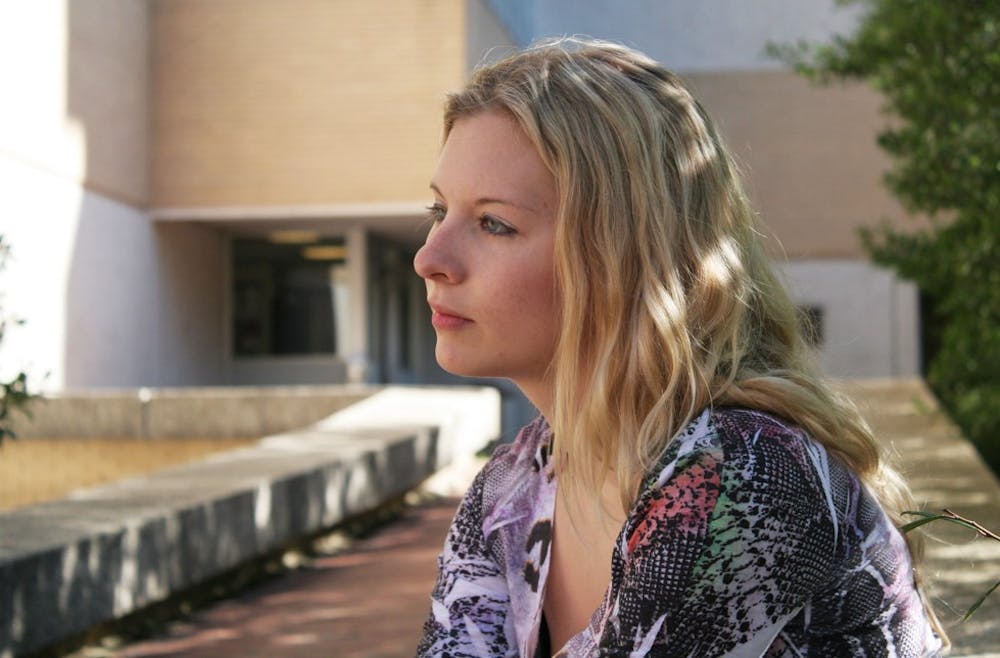“It’s the gold standard of treatment — dietician, physician, mental health therapist,” she said.
Amy Leach, a campus clinical social worker who works with eating disorders, said students can schedule an assessment and staff will help pair them with a long-term counselor in the community.
“Often students with eating disorders aren’t appropriate for short-term counseling,” she said.
She said she often refers students to the UNC Eating Disorders Program, which started in 2003 and is led by Dr. Cynthia Bulik, a professor at UNC.
The program provides outpatient counseling, 12 inpatient beds, partial hospitalization and other services — including trial treatments like couples counseling, which partners attend to help an anorexic spouse.
Bulik said such opportunities are a benefit of being located on a research campus.
“Our research informs our clinical practice, and our clinical practice informs our research,” she said. “Nobody else on the planet has this treatment.”
Prior to the program’s creation, North Carolina lacked a comprehensive center — as Rita Robbins, a Chapel Hill real estate agent and single mother of four, learned when her daughter, Jennifer McLamb, nearly died of anorexia.
UNC
At the hospital, Robbins heard personnel saying they couldn’t help McLamb — and that pushed her to action.
“When you have a child’s life on the line, you can make miracles happen,” she said.
Robbins made calls to find government funds to send McLamb to New York for treatment she couldn’t access in-state.
To get the day's news and headlines in your inbox each morning, sign up for our email newsletters.
But Robbins didn’t stop when McLamb was safe in the hospital where she would spend 8 months gaining weight and recovering.
Instead, she created the Anorexia and Bulimia Foundation of North Carolina to address the treatment gap. With help from the state legislature, the group raised funds to start the endowment that brought Bulik to UNC.
“She has developed the best eating disorder treatment center — period,” Robbins said. “We’re so blessed to have her.”
Insurance issues
Bulik said though the center offers top-notch treatment, not everyone can access it.
“Don’t believe anybody when they say parity exists, because it doesn’t,” she said. “The single most distressing thing about my job is when an insurance company tries to kick someone out of the hospital prematurely.”
She said often, insurance companies won’t cover or will only partly cover expensive treatments — therapy sessions range from $180 to $240 per session and one day of inpatient services costs $1,625 — and many people don’t know to appeal for funds.
Cloninger said her family met with insurance issues when she was in treatment.
“They said to them it looked like I needed 10 days of treatment,” she said. “Which was complete bulls—t, because I was sick enough to need a feeding tube.”
She said the company then refused to pay for even the 10 days, but her father appealed.
“It happens to many people. At least we had insurance,” she said.
But Leach said Pearce and Pearce, Inc., UNC’s student insurance company, covers the expenses at most community mental health providers she sets students up with. She said co-pays for outpatient visits are usually between $20 and $30.
Bulik said when parity is limited, some alternatives exist.
She said those who can’t afford therapy or inpatient services can sometimes participate in free clinical trials or visit less expensive, non-specific local clinics.
“Typically, you need treatment,” she said. “Never brush off an eating disorder, or think that people are going to get over it.”
Contact the City Editor
at city@dailytarheel.com.



